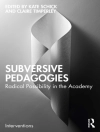‘This book is a must for learning about the experimental design–from forming a research question to interpreting the results this text covers it all.’
–Sarah El Sayed, University of Texas at Arlington
Designing Experiments for the Social Sciences: How to Plan, Create, and Execute Research Using Experiments is a practical, applied text for courses in experimental design. The text assumes that students have just a basic knowledge of the scientific method, and no statistics background is required. With its focus on how to effectively design experiments, rather than how to analyze them, the book concentrates on the stage where researchers are making decisions about procedural aspects of the experiment before interventions and treatments are given.
Renita Coleman walks readers step-by-step on how to plan and execute experiments from the beginning by discussing choosing and collecting a sample, creating the stimuli and questionnaire, doing a manipulation check or pre-test, analyzing the data, and understanding and interpreting the results. Guidelines for deciding which elements are best used in the creation of a particular kind of experiment are also given. This title offers rich pedagogy, ethical considerations, and examples pertinent to all social science disciplines.
Table des matières
Preface
Acknowledgments
About the Author
1. Discovering Cause and Effect
Causation
Experiments Compared to Other Methods
Basic Criteria for Experiments
Elements of Experiments
Starting a Study of Your Own
2. Ethics and Famous Experiments in History
The Scurvy Studies
The Contributions of Charles Peirce
Ronald Fisher’s Plots and Tea
B. F. Skinner: Small Samples, High Tech
Stanley Milgram Shocks the World
Philip Zimbardo: Raising Consciences in a Stanford Basement
Conclusion
3. Theory, Literature, and Hypotheses
The Literature Review
Hypotheses and Research Questions
4. Types of Experiments
Campbell and Stanley’s Typology of Experiments
Quasi Experiments
Natural Experiments
Field Experiments
5. Internal and External Validity
Ecological and External Validity
Generalizability
Cause and Effect
Logical Inference
Replication
Internal Validity
6. Factorial Designs
Single-Factor Designs
Factorial Designs
How Subjects Are Used in Designs
Control Groups
7. Random Assignment
The Purpose of Random Assignment
Operationalizing Random Assignment
Reporting Random Assignment
Balanced and Unbalanced Designs
Checking That Random Assignment Was Effective
Blocking, Matching, and Other Strategies
Random Assignment of Other Things
Random Assignment Resistance
8. Sampling and Effect Sizes
Student Samples
Amazon’s Mechanical Turk
Other Subject Sources
Recruiting
Incentives
Sample Size and Power
9. Stimuli and Manipulation Checks
Examples of Stimuli
Advice on Creating Stimuli
Manipulation Checks
Reporting the Stimuli and Manipulation Checks
10. Instruments and Measures
Instruments
Measurement Issues
11. The Institutional Review Board and Conducting Ethical Experiments
Institutional Review Boards
Ethical Issues in Experiments
Protecting Subjects
Researcher Issues
Pilot Studies
Glossary
Index
A propos de l’auteur
Renita Coleman has a bachelor’s degree in journalism from the University of Florida, a master’s and Ph.D. in journalism from the University of Missouri. Her research focuses on ethics, framing and agenda setting with a special focus on visual communication. She has studied the effects of photographs on ethical reasoning, the framing and attribution of responsibility in health news, and the moral development of journalists and public relations practitioners, among other topics. She has published more than 40 peer reviewed articles in academic journals including Journal of Communication, Journalism & Mass Communication Quarterly, Journal of Broadcasting and Electronic Media, Journal of Mass Media Ethics, Journalism, and Journalism Studies. She has two co-authored books, “Image and Emotion In Voter Decisions: The Affect Agenda, ” in 2015, and “The Moral Media: How Journalists Reason About Ethics” in 2005. Before beginning her academic career, Coleman was a journalist at newspapers and magazines for 15 years. She was a reporter, editor, and designer at the Raleigh, N.C. News & Observer, the Sarasota FL Herald-Tribune, and the Orlando, FL Sentinel among other news organizations. Coleman teaches undergraduate and graduate courses in ethics, lifestyle journalism, and experimental design.












